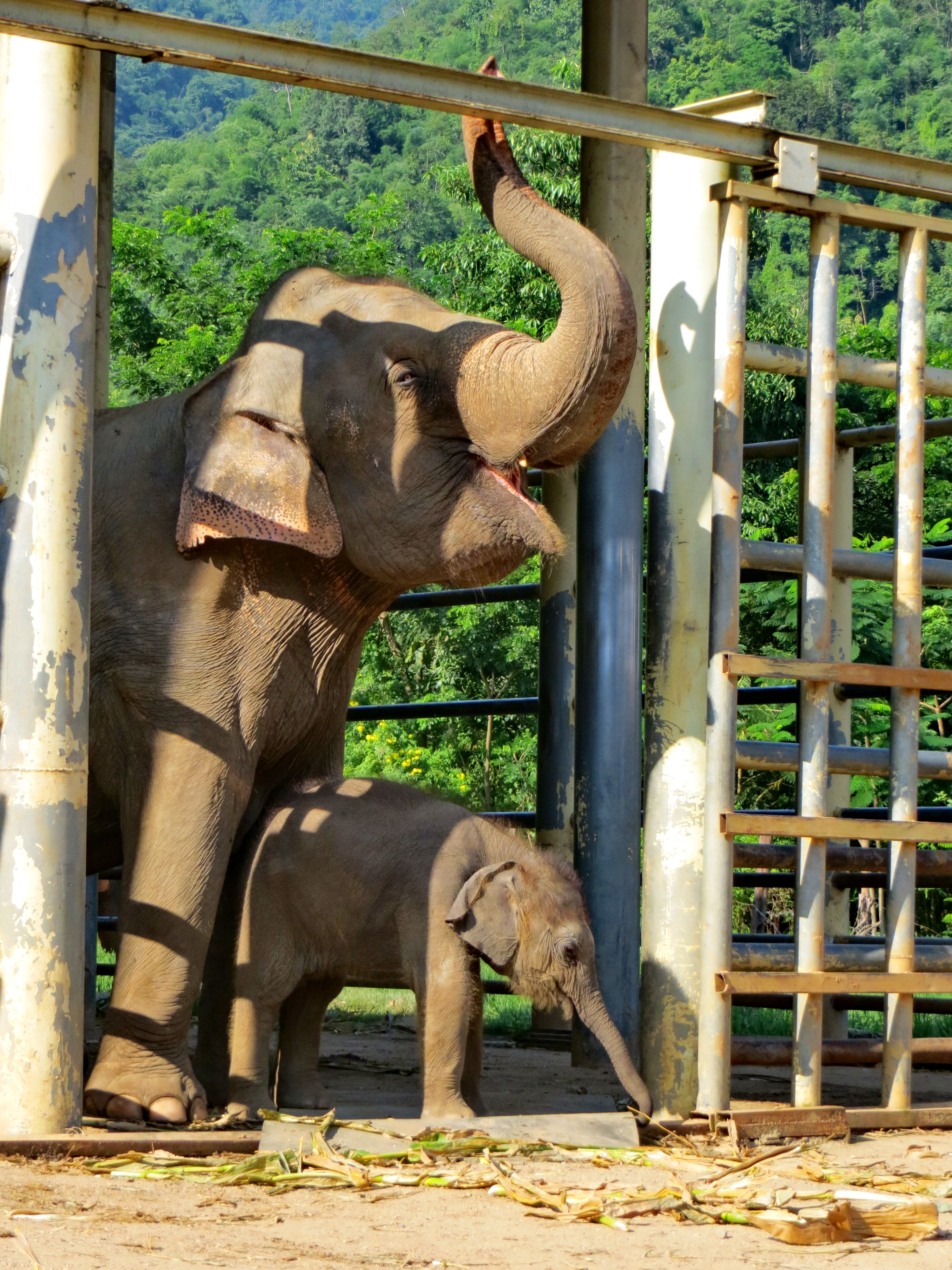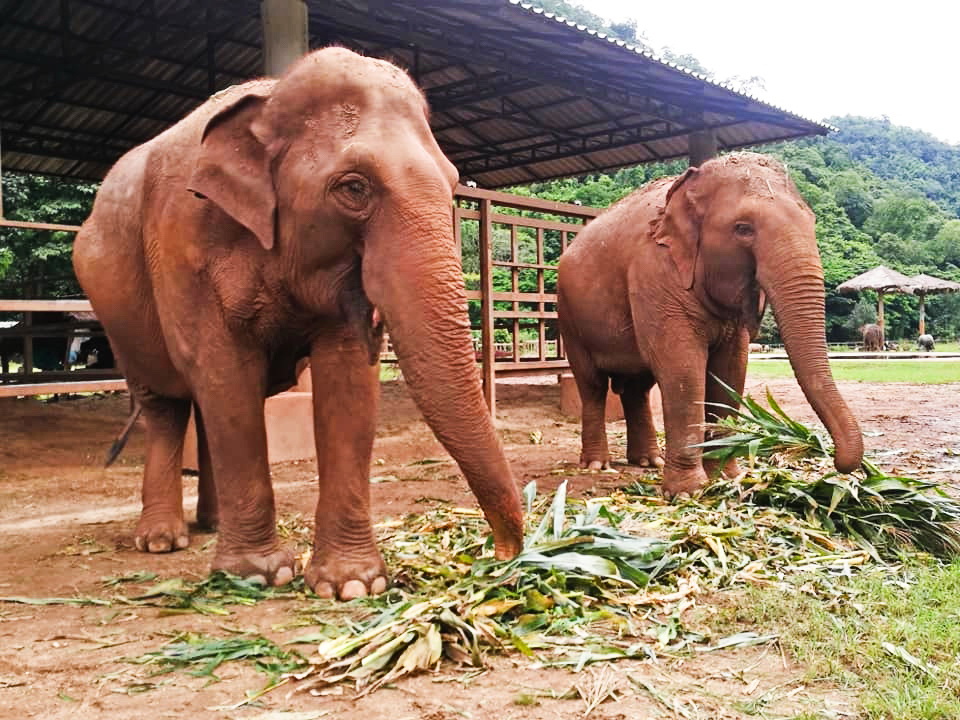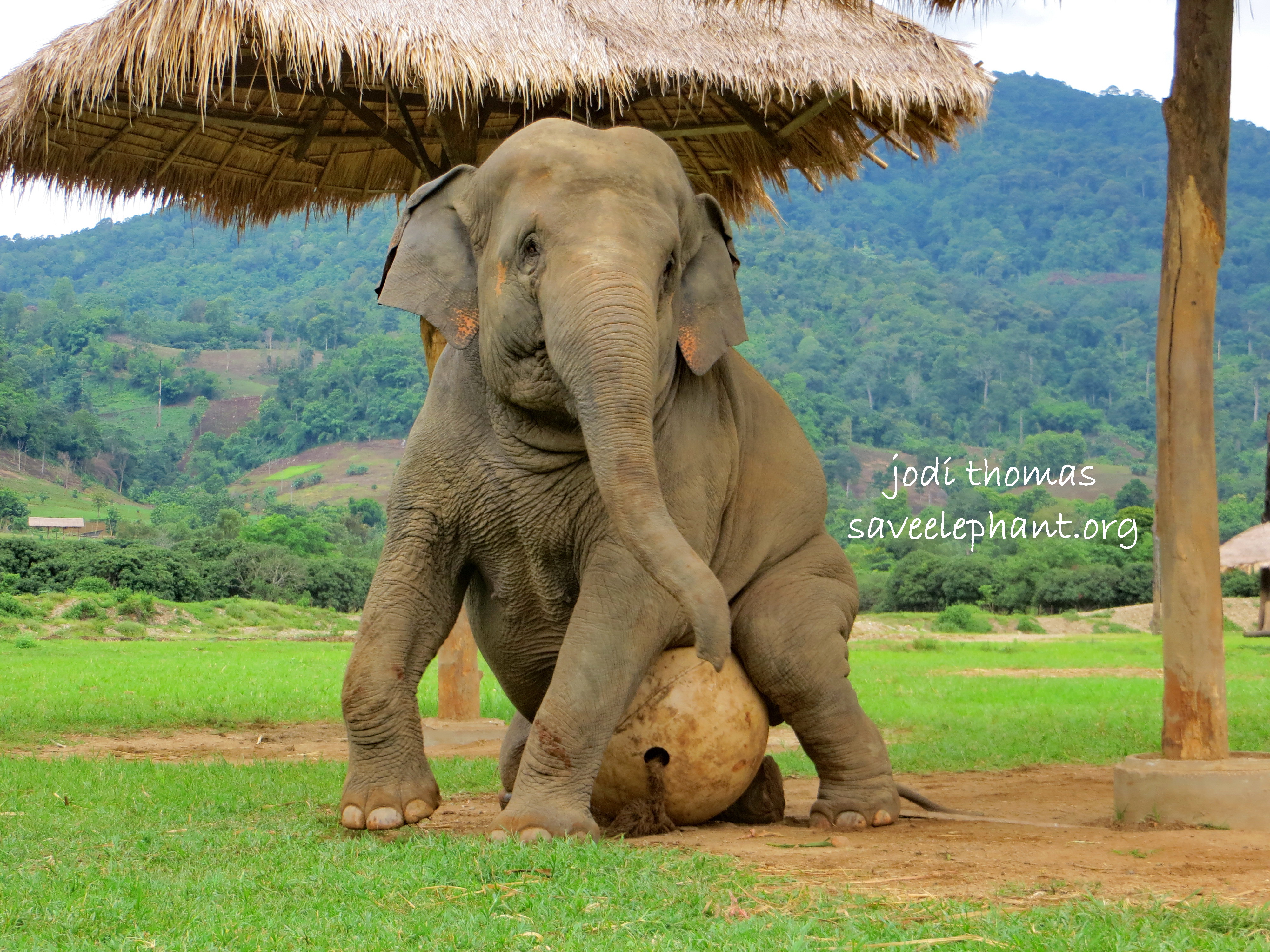Meet the Mahout: Buchu
It is common knowledge that the majority of mahouts are not highly educated and do not have many other career options. The job of mahout is considered somewhat dirty and dangerous without much room for advancement. At Elephant Nature Park, all of our mahouts come from the Karen (or Kayin), Kayah and Shan states of Burma. Most of them did not actually want to leave their beloved homeland. They loved living amongst their own tribes, practicing their tribal traditions, speaking their own language, singing their songs, cooking their own style of food. They loved the mountains that had given life to their people for generations, but they were forced to flee for many reasons.
Most of them ended up in refugee camps (just inside Thailand) or became migrant workers here. Mahout jobs are readily available and the pay makes it worthwhile. Back at home, where they could read and write and speak the language, many men currently working as mahouts in Thailand, were once teachers, ministers, university students or teachers in training.
Here is the story of our teacher mahout, “Acharn” Buchu
Buchu never dreamed of becoming a mahout.
He is around 45-years-old and comes from a small village in the southern Kayah state. He is one of eight children. His parents died when he was quite young and he was placed in the care of the parish priest. At nine, Buchu was sent to study at a Catholic Seminary school in Loikaw. Here he received a good education and strong religious beliefs. He was in training to become a priest, but failed the last exam and was not able to enter the priesthood. He returned to his small village and took a job as a primary school teacher. The government paid the teachers 1000 baht a month, barely enough to get by. Buchu once again lived with the parish priest who raised him. During the day he taught the young students and in the evenings he helped out at the church teaching hymns to older students.
After four years, Buchu decided during the summer vacation to head to the border to look for work until the new school year started. He never actually planned to come to Thailand, but he was told by others that he might get work in Mae Hong Son. His first experience in Thailand was a bit scary. He was caught by police and in jail for five days, but despite it all he decided to stay, as the opportunity for making money was good compared to back home.
Becoming a mahout
For a few months he worked in people’s gardens, but eventually he became a mahout because it was a readily available job. The first elephant he worked with was a female named Mae Somboon. He stayed with her for two years, until her owner decided to take her back home. After this, he moved to an elephant camp close to Chiang Rai and stayed there for one year. In 2004, Buchu finally returned to this area. A number of his friends were working at ENP at that time, so he came to ask for a job and has been here ever since.
Buchu has a gentle, quiet nature and animals feel comfortable around him. He rarely raises his voice. The first elephant Buchu cared for at ENP was Lily. They were together for almost six years. Lily was a bit slow due to her abusive past — she had been forced to take amphetamines and work double shifts. Buchu was a perfect mahout for her as he allowed Lily to take her time and was very patient. Lily felt safe and trusted him.
The life of a mahout can sometimes be a lonely one: you live far away from your family and if you are single, there is no one to come home to at the end of the day. Towards the end of his time with Lily, Buchu decided he was ready to get married. Being a devout Catholic he was looking for a wife whose faith was as strong as his, had a good educational background and loved animals. He put the word out among friends and family back in Kayah state and in the refugee camps as well. Soon, Buchu found himself in a long distance courtship by phone. Her name was Annie. She had taught chemistry at a Christian university in Loikaw, was very well educated, spoke English and had a soft spot for animals. She was perfect. They talked together on the phone every day for three months. Buchu then took a week off work to go to the refugee camp to marry Annie. They had yet to meet each other in person.
That was four years ago …
Today, Buchu and Annie’s life revolves around animals. Buchu is now the mahout of Mae Bua Tong, mother of Tong Jaan and Faa Mai. He spends his days amongst the largest family group of elephants in the park and a small herd of mahouts and mahout dogs as well. Mae Bua Tong is happy to have Buchu as her mahout. He rarely reprimands her, instead allowing her to do what she wants, often times to the distress of the other mahouts in the family group. Buchu is happy to leave the role of the ‘bad guy’ to someone else. Annie feeds and cares for more than 60 cats, 10 dogs and a myriad of other assorted animals who reside at ENP.
Buchu and Annie are a rarity in their culture as they really do seem to genuinely love and care for animals. You will always see Buchu stopping to give any dog a friendly pat or belly rub. Where they come from, medicine for people is not often available, so vaccinating the animals who lived with them is simply not an option. Because of this, most people do not encourage touching, petting or any kind of affection with animals as they are afraid of catching germs or disease. While this makes sense, they lose out on the bond that can grow between human and animal.
We are happy to have true animal lovers like Buchu and Annie on staff here at ENP. We hope that they are an example to those around them, who may learn to reach out and love the animals in their midst.
Comments are closed.







This is just so lovely. I spent two weeks at ENP 4 years ago and the mahouts really left an impression with me. Most of them don’t speak any English at all but they are patient with the visitors that try to talk to them and ask them questions. They come from such a sad and difficult background and as much as ENP is a haven for them as much as the animals, they are still so very far away from all their friends, family and everything they know. I’m so very glad to read that one of the Mahouts had the opportunity to find love and happiness in a foreign land. So much of their lives lack the things that people in the west take for granted.
Buchu’s story is very touching! Glad you enjoyed!
Thank the spirit for people like Buchu and Annie,they show the true nature of compassion,non judgement and love for animals that have known lives of horrendous abuse and cruelty.
It is truly people like Buchu and Annie that make this world a better place, Helen!
[…] the night to see what was happening in the elephant’s sleeping area when suddenly one of the mahouts came running up the stairs shouting; “Baby coming! Baby […]